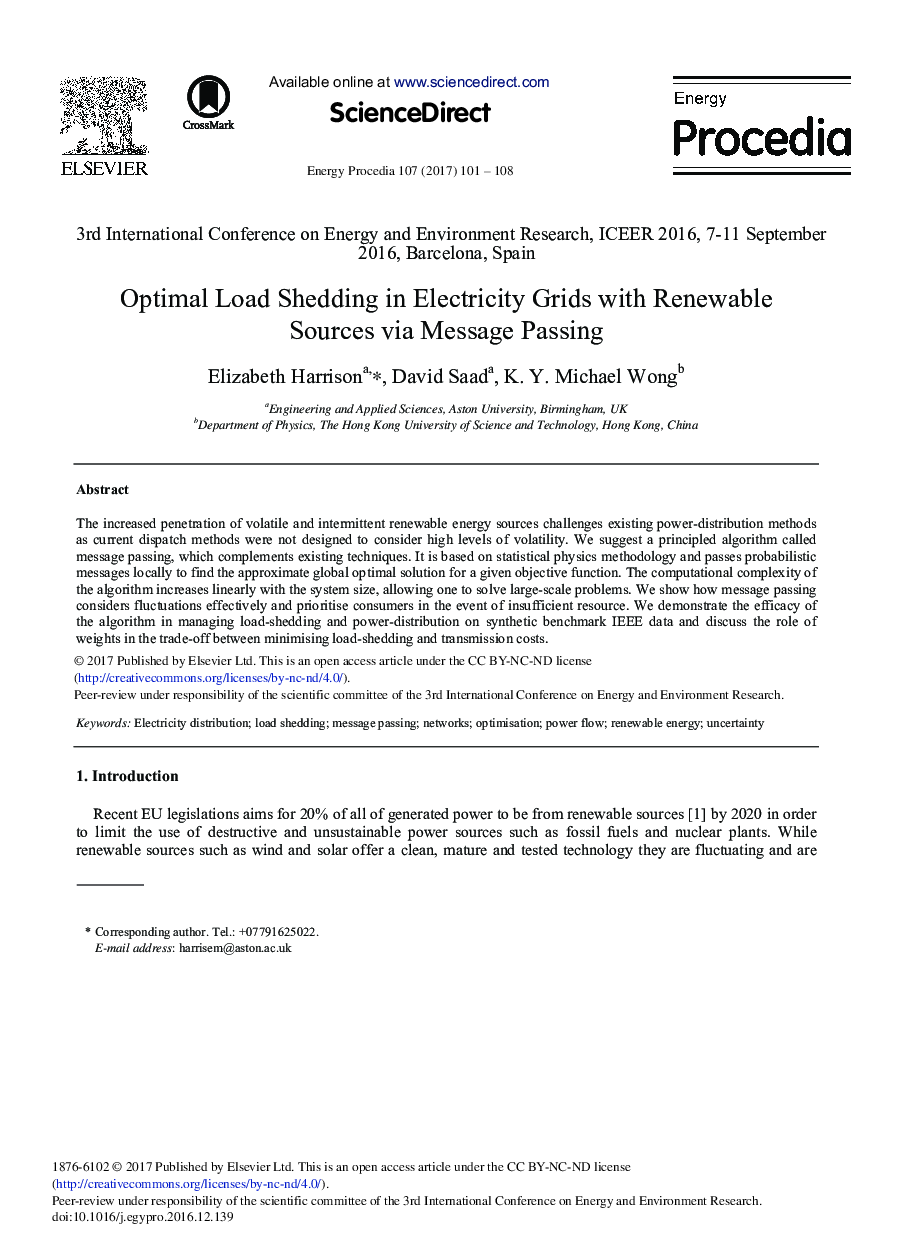| Article ID | Journal | Published Year | Pages | File Type |
|---|---|---|---|---|
| 5446172 | Energy Procedia | 2017 | 8 Pages |
Abstract
The increased penetration of volatile and intermittent renewable energy sources challenges existing power-distribution methods as current dispatch methods were not designed to consider high levels of volatility. We suggest a principled algorithm called message passing, which complements existing techniques. It is based on statistical physics methodology and passes probabilistic messages locally to find the approximate global optimal solution for a given objective function. The computational complexity of the algorithm increases linearly with the system size, allowing one to solve large-scale problems. We show how message passing considers fluctuations effectively and prioritise consumers in the event of insufficient resource. We demonstrate the efficacy of the algorithm in managing load-shedding and power-distribution on synthetic benchmark IEEE data and discuss the role of weights in the trade-off between minimising load-shedding and transmission costs.
Keywords
Related Topics
Physical Sciences and Engineering
Energy
Energy (General)
Authors
Elizabeth Harrison, David Saad, K.Y. Michael Wong,
